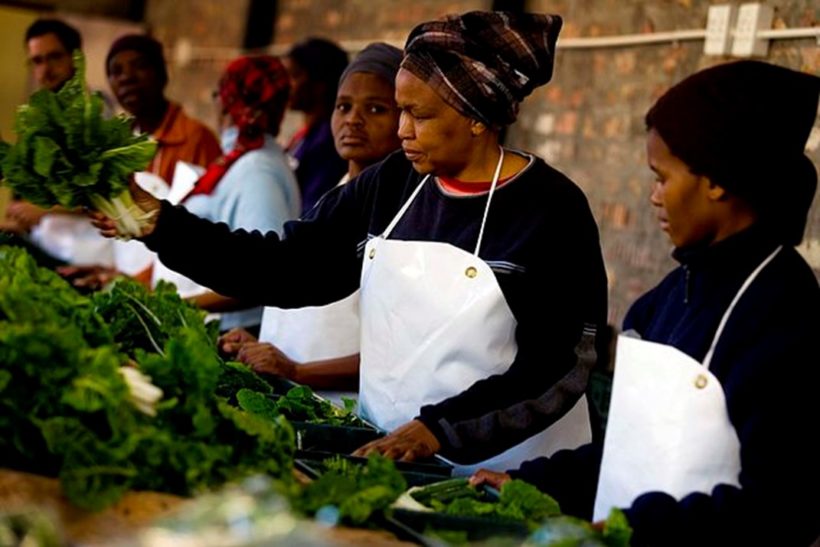Food security plays a major role in much of the world today as climate change, conflict, poor governance, and socioeconomic issues continue to make it harder for all people to have access to food. Terrorist organizations are one group that have been able to take advantage of food insecurity to gain and maintain support in many regions around the world. While food insecurity is not typically the sole driver of terrorist activities, it can work in conjunction with bad governance and political and economic repression to motivate groups.
At the World Food Summit in 1996, food security was defined as existing “when all people, at all times, have physical and economic access to sufficient, safe and nutritious food that meets their dietary needs and food preferences for an active and healthy life.” There are two important pillars that help to clarify the definition within the context of terrorism: availability and access. Availability refers to the supply aspects of food and whether a country has enough resources to meet the demands of its population. Access is related to the government’s ability to actually distribute food resources to all of its population and includes both the physical and economic means that citizens have to acquire food. When access is restricted, it is often due to low incomes, market fluctuations, and global food prices.
Terrorism is “the deliberate use or threat of force against non-combatants by a non-state actor in pursuit of a political goal.” There are two key elements to the drivers of terrorism: grievances and relative deprivation. Grievances refer to “a feeling or belief that one has been wronged, oppressed, or is the victim of an injustice.” Relative deprivation is a phenomenon that exists when “people feel that their expectations for material well-being are not being met” and can result in an increased proneness to radicalization or political violence. Groups that are often the most likely to resort to terrorism are those that face minority economic discrimination based on ethnic or religious classification in the workforce, health and social services, housing, and other economic opportunities; these groups tend to have more grievances and can be more susceptible to radicalization.
A government’s inability to respond to food insecurity as well as other security threats, such as militia groups, makes it easier for terrorist groups to garner support, especially among groups facing the discriminatory conditions outlined above. Terrorism is most likely to occur in states classified as medium- or low-development/income countries and in states that have medium levels of repression by the government. While terrorism is often a multi-faceted issue with multiple drivers, the ability to manage one pathway for radicalization – food insecurity – could make a difference in hindering recruitment efforts. If a state is unable to ensure that the two pillars of food security, availability and access, are able to be met, then that provides an avenue by which terrorist organizations can operate. Many groups today are able to take advantage of these gaps and can run parallel to states by providing food and other needed resources. If a group has no viable political outlet where they can legitimately express their grievances, then the likelihood that they will turn to violence increases. The risk can be amplified when the organization is running social services or food to these communities in order to increase support and to further radicalize those members against the state and broader population.
Though food insecurity is neither a necessary nor sufficient cause of terrorism, it can combine with government incompetency, political repression, and human rights violations to increase the likelihood of terrorism. In addressing these issues, it is important that developed states include food security into their counterterrorism strategies and that they shape counterterrorism strategies to specific groups/regions. To address terrorism, the drivers must be understood from the bottom-up in order to disrupt the radicalization and recruitment process. Lowering the risk and likelihood of terrorism will be a long-term project that will involve solving large, systemic issues in many countries that also have to contend with the changing status of climate change and the impacts of globalization.
Sarah Wells is a graduate student in the first year of her MA in International Security with a concentration in transnational challenges. She graduated from GMU in 2021 with a bachelor’s degree in Government and International Politics. Her research interests include international development and its relationship with governance, European security, and U.S. foreign policy more broadly in the contemporary era. She hopes to begin a career in foreign policy in the near future.
Photo: Kate Holt/Africa Practice.




